Working in R, I am trying to use nls() to fit some data to the following model:
y ~ c - a * exp(-b * x)
My data:
x <- c(8, 8, 10, 10, 10, 10, 12, 12, 12, 12, 14, 14, 14, 16, 16, 16, 18, 18, 20, 20, 20, 22, 22, 22, 24, 24, 24, 26, 26, 26, 28, 28, 30, 30, 30, 32, 32, 34, 36, 36, 38, 38, 40, 42)
y <- c(0.49, 0.49, 0.48, 0.47, 0.48, 0.47, 0.46, 0.46, 0.45, 0.43, 0.45, 0.43, 0.43, 0.44, 0.43, 0.43, 0.46, 0.45, 0.42, 0.42, 0.43, 0.41, 0.41, 0.40, 0.42, 0.40, 0.40, 0.41, 0.40, 0.41, 0.41, 0.40, 0.40, 0.40, 0.38, 0.41, 0.40, 0.40, 0.41, 0.38, 0.40, 0.40, 0.39, 0.39)
data <- data.frame(x, y)
Check to see if data fits the form of the model:
The book I'm working with says the coefficient estimates should be: c=0.3896, a=-0.2194, b=0.992.
My attempt using the given values, based on this thread 2, returns a singular gradient error:
m <- nls(y ~ I(c-a*exp(-b*x)), data=data, start=list(a=-.2194, b=1, c=0.3), trace=T)
I get acceptable values when I try to fit y ~ a * exp(-b * x) and y ~ exp(-b * x), but when I add the "c" term, I get the singular gradient error. I've also tried using nlsLM, which had the same issue, so I think it has to do with how I'm adding in that intercept term. Any advice is appreciated, thank you.

